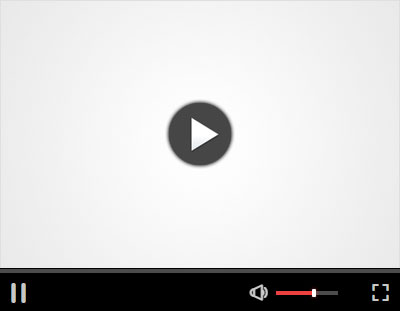|
今天小听给大家带来的听力素材还是这份在大陆畅销数百万册、在全球 35 个国家同步使用的生活化美语教材——《走遍美国》。
《走遍美国》于 1991 年出版,随后被翻拍成教育情景剧 ,以美国人的日常生活为中心,涉及美国文化的方方面面,比较贴近现实英语交流环境。小听建议先自己听一遍,这份教材主要涉及到口语会话,大家还是先锻炼一遍听力,看自己能听懂多少。其次就是对照文本,看自己遗漏了哪些信息,然后在没有文本的情况下检验一下自己能听懂多少。最后跟着模仿一遍,毕竟我们不能学哑巴英语,学英语一定要开口说,不然很难运用到实际生活中。最重要的是,大家要坚持,这份资料其实并不是很有难度,相信坚持学习下来的你,会在英语学习上做出一些改变。 你能听懂里面的对话吗?可以对照文本看一下自己的理解~ 小听要说的是,提供的文本是英文版,无翻译,更方便大家靠自己能力去理解,遇到不理解的词汇自己动手去查一下,或许会帮助你学到更多词汇~ 再听一遍核对一下叭~ 【故事梗概】 次日清早,在纽约州北部一个湖畔,Grandpa,Philip 和 Robbie 在准备钓鱼。他们遇到了一个叫 Albert 的小男孩。他也在钓鱼,但是他只有一个人…… 【听力文本】 [00:12.32] This is really neat!
[00:15.55] When do we eat?[00:18.36] First, we have to catch some fish.[00:21.05] In order to catch fish, you have to do this.[00:35.01] Then drop it into the water.[00:37.62] All of this comes before eating. OK?[00:41.73] How do you know so much about fishing?[00:44.38] Grandpa taught me.[00:46.27] We spent a lot of time fishing together.[00:49.11] Now, the important thing is to get the hook close to the fish.[01:09.15] I think I see some fish right under us, Dad.[01:11.38] Oh, not a chance![01:13.42] I just saw a big one![01:18.35] What's your name?[01:20.16] Are you all alone?[01:23.01] How old are you, Albert?[01:28.08] Where's your father?[01:29.66] He's up there at the lodge.[01:34.26] Does he know you're here?[01:37.57] OK, Robbie, maybe you should watch him.[01:40.75] The water's pretty deep here.[01:42.52] I'll watch him, Dad.[01:51.28] What time is it?[01:53.05] It's almost lunchtime, and no fish yet.[01:56.56] I can go up to the lodge for some hot dogs and drinks.[02:00.40] We're here to catch our lunch.[02:02.86] To catch fish, you need the right magic.[02:08.45] The right magic.[02:10.10] Do it for Robbie, Dad.[02:12.75] Sure. Come on.[02:13.79] Well, first, you have to turn your hat around like this.[02:18.90] Then you close your eyes and say the magic words.[02:23.81] Fish, fish, send me a fish.[02:32.72] Fish, fish, send me a fish.... I got one![02:39.60] See, it works![02:41.40] It's a big one![02:42.40] Well, it always worked for me, too.[02:45.60] Grandpa, get the net, please![02:55.56] Dad, you got one, too![02:57.06] You bet I have![02:58.33] Easy, Philip, easy.[03:07.82] Well, one more and I've got a pair of boots.[03:13.58] You didn't say the magic words.[03:15.39] Robbie's right.[03:16.62] Yes, but you did, and we've got our lunch.[03:19.58] Let's build a fire and cook it![03:20.96] Come on, Albert, you can help us![03:23.30] I want to stay here and fish.[03:25.34] All right, but be careful.[03:38.18] Is it finished yet?[03:40.26] I hope you like your fish well done.[03:44.68] Burned, you mean.[03:46.37] Hey, I'm a doctor, not a chef.[03:58.69] Help! Help! I can't swim![04:02.07] Dad! Grandpa! He fell in![04:22.67] Easy does it, Robbie.[04:26.30] He's not breathing, Philip![04:28.26] Robbie, run to the car![04:29.56] Bring a blanket and my medical bag.[04:31.85] Now, come on, son. Come on, son.[04:43.86] Breathe, Albert!■ Here we go. 在这里的意思是'We re starting now. ',现在我们可以开始。这是一种非正式的表达法。不可能。意思相当于'That's impossible. '■ Hi, there! 你好。这是一种口语式打招呼方式。 ■ Are you all alone? 就你一个人吗?all 在这里的意思是“完全,就”,常用以加强语气。 ■ You bet I have! 当然了我也钓到一条! You bet 相当于'You can be sure. '(当然了)。 ■ One more and I ve got a pair of boots. 再钓一只我就有一双靴子了。这是Philip用来自我调侃的话。这里的and表示必然会发生的后果,又如: Say that again and I ll hit you.(你再说一遍我就揍你。) One wrong step and you fall down the cliff.(走错一步,你就会掉下悬崖。) ■ Burned, you mean. 你的意思是说烧焦了。you mean可以用于纠正对方的话或者确定对方的意思和自己理解得是否相同。本情境中,Philip说'I hope you like your fish well done.' 这里 well done 指煎(炸)得十分熟的(牛排、肉块等)。而实际上鱼已经有点烤焦了,于是 Grandpa 以开玩笑方式纠正他。 ■ Easy does it. 别慌,慢点。与“take it easy, take things easy”同义。 ■ That a boy. That s it. 两句的意义相同,都是“对了,就这样”的意思,是在夸奖别人干得好或干得对的时候说的。 ■ Now, come on, son. 醒醒,孩子。son: 孩子。Albert 当然不是 Philip 的儿子,但是年纪大的人常常直接用son来称呼小男孩。 Albert 几岁了?
|





